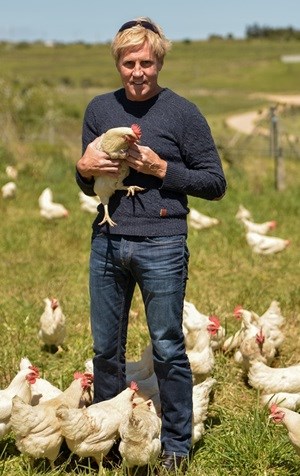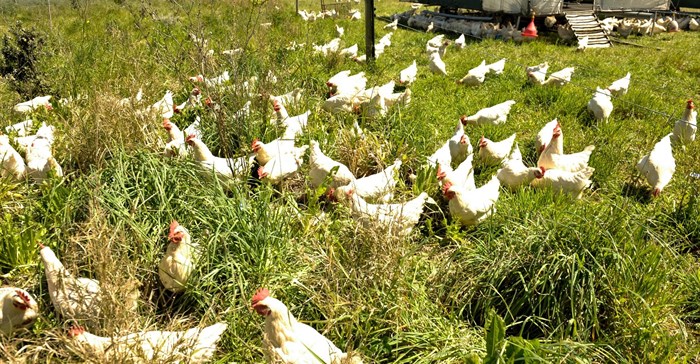
Cage-free hens can spread their wings and engage in many more natural activities. However, they may not have access to the outdoors. Free range operations, on the other hand, allow hens varying levels of access to the outdoors. Most people are unaware that caged hens endure a great deal of pain. Their toes are cut off to prevent scratching each other and their beak tips are seared off with a heat guillotine. They are crammed into small cages and many die. The dead hens are minced and fed to pigs.
There are no free range regulation standards in South Africa, but free-range is generally understood to mean a non-caged system with some level of outdoor access.
Unfortunately, there are no animal welfare certification schemes in South Africa at this time. However, when companies adopt cage-free policies, you can at least be confident that the animals have the space to spread their wings, walk, jump, lay their eggs in nests, and experience many other natural behaviours.
It is difficult to truly account for the degree and amount of suffering that hens experience while raised in a small, wired cage. The cages generally hold five to ten birds at once and each hen is given less space than the area of a letter-sized sheet of paper in which to eat, sleep, lay eggs and defecate. The confinement makes it impossible for them to engage in nearly all of their natural behaviour, including dustbathing, foraging, or nesting - the most significant source of frustration for battery caged hens.
You actually don’t need to know anything about a hen’s biological needs to understand the situation they are in. Imagine spending 24 hours in an elevator with nine other people. Now imagine that 24 hours being stretched for your entire life.
In terms of quality of the product, many people find a positive difference in the taste and texture of eggs from hens who have a decent quality of life. On balance, the scientific evidence suggests that caged hens have increased Salmonella infection risks.
It’s actually strange that McDonalds SA has not moved forward and adopted a cage-free policy. McDonalds in many other countries – as well as numerous other food companies worldwide – have taken this step. It’s clear consumers want higher welfare products. Moreover, we are seeing investment banks, governments and producer organisations demanding eggs be sourced in a more humane way, so I’m not sure what is holding McDonalds SA back.

This is a question that needs to be asked of McDonald’s South Africa, as they have already adopted cage-free policies the United States, Canada, New Zealand, Australia, Russia, and across the European Union. There really is no need for further study.
This means nothing in terms of animal welfare, as their current suppliers confine hens for their entire lives in small, cramped battery cages. Since we know that the incidence of Salmonella is higher in caged facilities, they clearly also lack a sufficiently strong food safety policy.
Companies like McDonalds will respond to consumer demand. If you care about the welfare of hens, let companies know. Email them. Tell the Manager when you are in the store. Post something on their Facebook page. Or simply spend your money somewhere else. The power of the consumer is huge. We all need to move away from an apathetic stance to one of action. My DOT (Do One Thing) campaign is about this exact thing. If we all Do One Thing, collectively, we change things. It was once said; ‘evil prevails when good people do nothing.’
Consumers are increasingly informed about the ways in which their food is produced, and make choices based on that information. Battery cages have no support from consumers. Companies that move to adopt cage-free policies earlier rather than later will have a greater market advantage – capturing and retaining the growing number of customers who care about farm animal welfare. It is vital that we, as humans, speak out for the species that can’t.
To sign the petition and help McDonals commit to cage-free, please click HERE.
